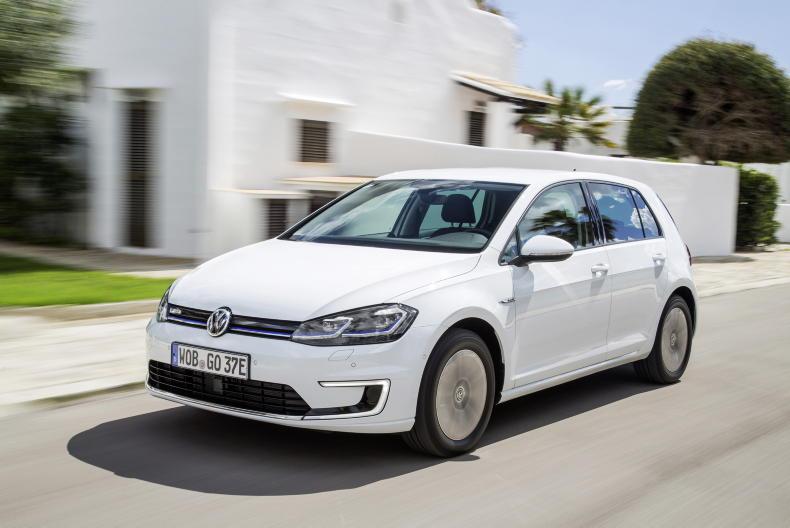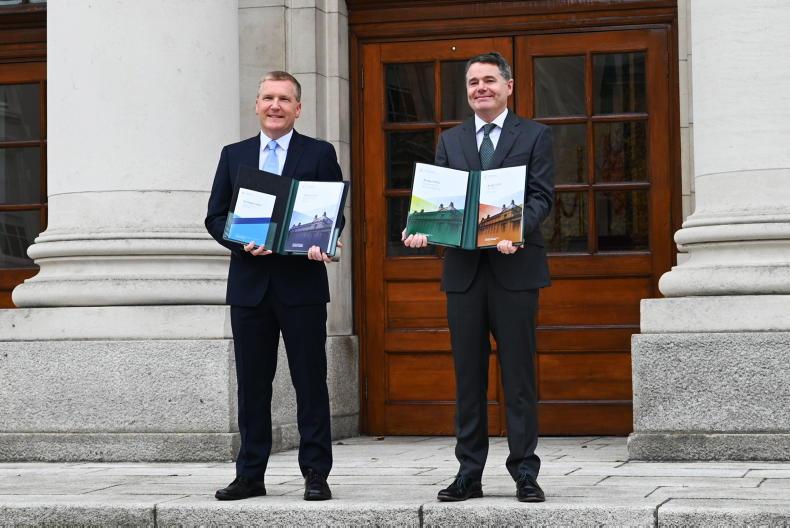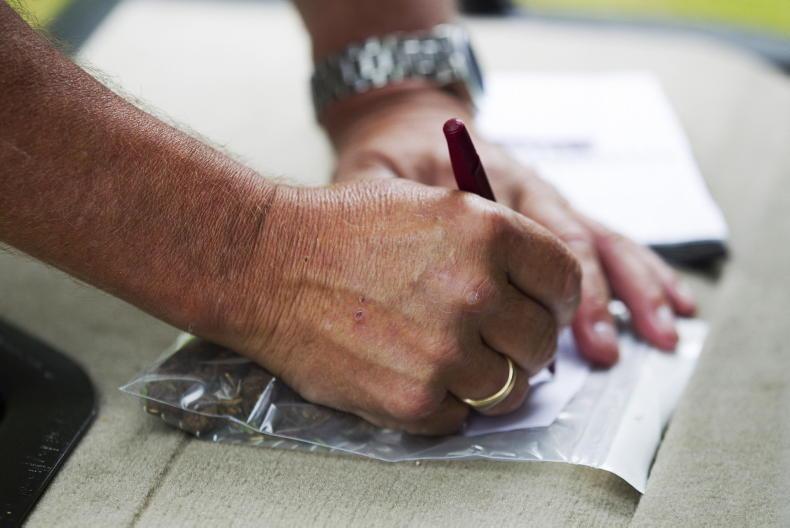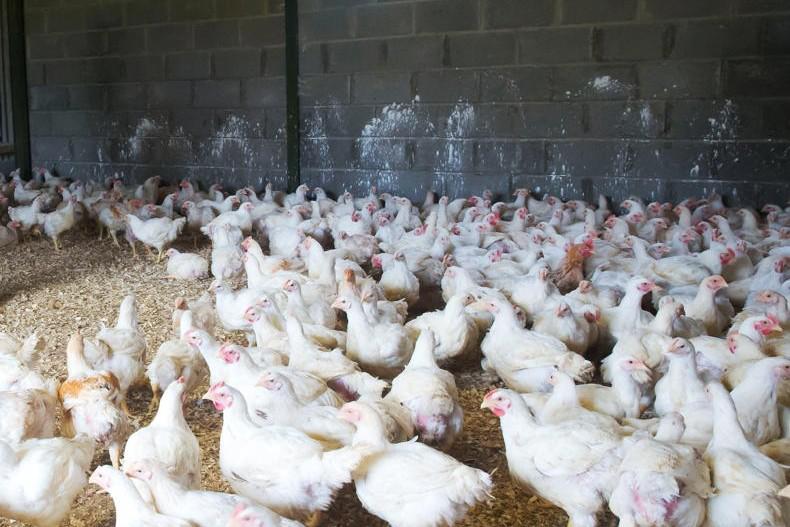Budget 2022 features a total budgetary package of €4.7bn comprising expenditure measures of €4.2bn and tax measures worth €0.5bn.
Some of the tax measures include modest changes to income tax bands and tax credits, various supports for business and farmers, and measures focused particularly on critical issues such as housing and climate change.
The Finance Bill published
on 21 October 2021
Some highlights of interest to farming households:
Income tax and universal social charge (USC) – standard band increased by €1,500 and ceiling of second USC band increased to €21,295. Each of the personal tax credit, employee tax credit and earned income credit will be increased by €50.National minimum wage – will increase by 30c to €10.50 per hour from 1 January 2022.Pension payments – an increase of all pension payments (for those aged 66+) by €5 per week, with proportionate increases for qualified adults and those on reduced rates of payment.Working from home – an income tax deduction of 30% in relation to the cost of vouched heat, electricity and broadband in respect of those days spent working from home. Social welfare payments – a €5 weekly increase for jobseekers and other social welfare recipients from January 2022. The living alone payment will increase by €3. COVID-19 supports – the Employment Wage Subsidy Scheme (EWSS) payments remain in a graduated form until the end of April 2022.Carbon tax – Carbon tax is up by €7.50/t, with band-related Vehicle Registration Tax (VRT) increases, and €5,000 relief for electric vehicles extended to the end of 2023. The carbon tax increase will increase the cost of petrol, diesel and heating fuels, resulting in the price increase of filling a 60-litre tank of petrol by €1.28, and a tank of diesel by €1.48, and a 900-litre tank of kerosene by €19.40. From 1 January 2022, the €2,500 grant for plug-in hybrid electric vehicles (PHEV) is to be removed. 
Fuel allowance – an increase of €5 per week, resulting in €33 per week, which is effective immediately. The means test will be increased to allow more people avail of the allowance. Tobacco – a 50c increase in the cost of 20 cigarettes. Education – an additional 350 teachers will reduce the pupil/teacher ratio in primary schools by one point 24:1. Nine hundred and eighty new teachers will be recruited to support children with special needs and 1,165 new special needs assistants (SNAs) will be recruited. Schools will be provided with books, audio books and other media. Third-level education – 3,320 new CAO places will be created. The current Post-Leaving Certificate (PLC) course contribution fee of €200 will be abolished. The student maintenance grant (part of the student grant scheme SUSI) will be increased by €200 in 2022. The cut-off threshold for eligibility for the student grant will increase by €1,000. The travel distance for the “non-adjacent” rate will decrease to 30km from 45km. A new Youth Travel Card will enable people aged 19 to 23 to get a 50% reduction in public transport fares.Childcare and parenting – the Universal Subsidy will be extended to children up to 15 from September 2022. Hours spent in pre-school or school will no longer be deducted from hours subsidised by the National Childcare Scheme. Parent’s leave and parent’s benefit will be extended by two weeks to seven weeks from July 2022. There is also an extension of free GP care to children aged six and seven.Help to Buy Scheme – income tax rebate capped at €30,000, for first time buyers of a principal private residence. The relief is 10% of the house value. There is no relief for houses valued greater than €500,000. Claimants must take a mortgage of at least 70% of the purchase price. The scheme only applies to new builds, self builds or a converted building not previously used as a dwelling and not to secondhand properties. This scheme has been extended to 31 December 2022 with a full review to be undertaken.An unmarried couple, living together, renting, both employed, one earning €81,000 (in an agricultural business), and one earning €34,000. Due to Budget 2022, this couple will benefit by €300 due to the change in tax bands, €200 due to the change in tax credits and €30 due to changes in USC, resulting in a total saving of €530 per annum.
A married couple with three young children, farming 80ac with both sucklers and sheep. Their home is in a rural location and they have high diesel usage. They have pre-ordered a new plug-in hybrid electric vehicle (PHEV) to be delivered in January 2022. Due to Budget 2022, this couple will benefit from the increase in the married person’s tax credit of €100, the self-employed credit of €50 and €15 due to USC changes, a total of €165 per annum. They may also benefit from the childcare and parenting changes. However, they will also incur extra expenses due to the increase in the cost of diesel/petrol. Also, due to the recent decision to remove the €2,500 grant for PHEV from I January, they will need to supplement this extra cost themselves. The existing grant will only now apply to vehicles that are delivered, registered and taxed before the end of 2021, unless delivery has been delayed due to the global semiconductor shortage. If so, the grant is extended to 31 March 2022.
A retired farmer living alone, on a State contributory pension who has transferred the family farm to his son, due to Budget 2022, will benefit by the pension increase of €5 per week, the living alone allowance of €3, and the fuel increase by €5, resulting in a total of €546 per annum. The fuel allowance commenced 27 September 2021 and is paid over 28 weeks with the €5 increase effective immediately.
Read more
Money Mentor: Budget 2022 changes of farmer interest
Young farmers' stamp duty relief extended
Budget 2022 features a total budgetary package of €4.7bn comprising expenditure measures of €4.2bn and tax measures worth €0.5bn.
Some of the tax measures include modest changes to income tax bands and tax credits, various supports for business and farmers, and measures focused particularly on critical issues such as housing and climate change.
The Finance Bill published
on 21 October 2021
Some highlights of interest to farming households:
Income tax and universal social charge (USC) – standard band increased by €1,500 and ceiling of second USC band increased to €21,295. Each of the personal tax credit, employee tax credit and earned income credit will be increased by €50.National minimum wage – will increase by 30c to €10.50 per hour from 1 January 2022.Pension payments – an increase of all pension payments (for those aged 66+) by €5 per week, with proportionate increases for qualified adults and those on reduced rates of payment.Working from home – an income tax deduction of 30% in relation to the cost of vouched heat, electricity and broadband in respect of those days spent working from home. Social welfare payments – a €5 weekly increase for jobseekers and other social welfare recipients from January 2022. The living alone payment will increase by €3. COVID-19 supports – the Employment Wage Subsidy Scheme (EWSS) payments remain in a graduated form until the end of April 2022.Carbon tax – Carbon tax is up by €7.50/t, with band-related Vehicle Registration Tax (VRT) increases, and €5,000 relief for electric vehicles extended to the end of 2023. The carbon tax increase will increase the cost of petrol, diesel and heating fuels, resulting in the price increase of filling a 60-litre tank of petrol by €1.28, and a tank of diesel by €1.48, and a 900-litre tank of kerosene by €19.40. From 1 January 2022, the €2,500 grant for plug-in hybrid electric vehicles (PHEV) is to be removed. 
Fuel allowance – an increase of €5 per week, resulting in €33 per week, which is effective immediately. The means test will be increased to allow more people avail of the allowance. Tobacco – a 50c increase in the cost of 20 cigarettes. Education – an additional 350 teachers will reduce the pupil/teacher ratio in primary schools by one point 24:1. Nine hundred and eighty new teachers will be recruited to support children with special needs and 1,165 new special needs assistants (SNAs) will be recruited. Schools will be provided with books, audio books and other media. Third-level education – 3,320 new CAO places will be created. The current Post-Leaving Certificate (PLC) course contribution fee of €200 will be abolished. The student maintenance grant (part of the student grant scheme SUSI) will be increased by €200 in 2022. The cut-off threshold for eligibility for the student grant will increase by €1,000. The travel distance for the “non-adjacent” rate will decrease to 30km from 45km. A new Youth Travel Card will enable people aged 19 to 23 to get a 50% reduction in public transport fares.Childcare and parenting – the Universal Subsidy will be extended to children up to 15 from September 2022. Hours spent in pre-school or school will no longer be deducted from hours subsidised by the National Childcare Scheme. Parent’s leave and parent’s benefit will be extended by two weeks to seven weeks from July 2022. There is also an extension of free GP care to children aged six and seven.Help to Buy Scheme – income tax rebate capped at €30,000, for first time buyers of a principal private residence. The relief is 10% of the house value. There is no relief for houses valued greater than €500,000. Claimants must take a mortgage of at least 70% of the purchase price. The scheme only applies to new builds, self builds or a converted building not previously used as a dwelling and not to secondhand properties. This scheme has been extended to 31 December 2022 with a full review to be undertaken.An unmarried couple, living together, renting, both employed, one earning €81,000 (in an agricultural business), and one earning €34,000. Due to Budget 2022, this couple will benefit by €300 due to the change in tax bands, €200 due to the change in tax credits and €30 due to changes in USC, resulting in a total saving of €530 per annum.
A married couple with three young children, farming 80ac with both sucklers and sheep. Their home is in a rural location and they have high diesel usage. They have pre-ordered a new plug-in hybrid electric vehicle (PHEV) to be delivered in January 2022. Due to Budget 2022, this couple will benefit from the increase in the married person’s tax credit of €100, the self-employed credit of €50 and €15 due to USC changes, a total of €165 per annum. They may also benefit from the childcare and parenting changes. However, they will also incur extra expenses due to the increase in the cost of diesel/petrol. Also, due to the recent decision to remove the €2,500 grant for PHEV from I January, they will need to supplement this extra cost themselves. The existing grant will only now apply to vehicles that are delivered, registered and taxed before the end of 2021, unless delivery has been delayed due to the global semiconductor shortage. If so, the grant is extended to 31 March 2022.
A retired farmer living alone, on a State contributory pension who has transferred the family farm to his son, due to Budget 2022, will benefit by the pension increase of €5 per week, the living alone allowance of €3, and the fuel increase by €5, resulting in a total of €546 per annum. The fuel allowance commenced 27 September 2021 and is paid over 28 weeks with the €5 increase effective immediately.
Read more
Money Mentor: Budget 2022 changes of farmer interest
Young farmers' stamp duty relief extended










SHARING OPTIONS